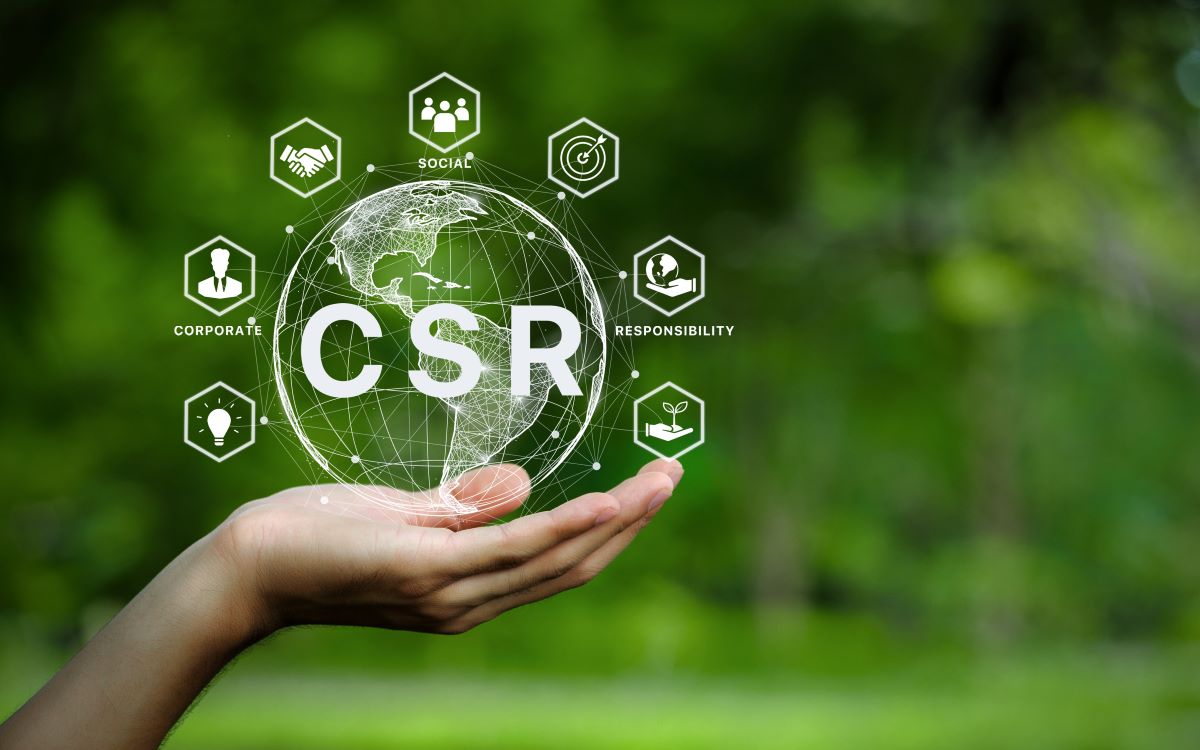Corporate social responsibility (CSR) is a company’s ethical, social, and environmental responsibilities. Experts say CSR is good business and can also contribute to a better business environment.
As a corporate practice, it has gained increasing prominence in the Gulf region, as companies recognize the importance of making a positive impact on society.
Factors driving the adoption of CSR in the region
- Economic growth. Rapid economic growth has created a need for companies to contribute to the development and well-being of communities.
- Global trends. The increasing global focus on corporate social responsibility has influenced companies to adopt similar practices to enhance their reputation and competitiveness.
- Stakeholder expectations. Stakeholders, including customers, employees, investors, and governments, are placing greater emphasis on responsible business practices. This encourages companies to integrate CSR into their operations.
- Government initiatives. Governments in the Gulf region are promoting CSR and incentivizing companies to adopt socially and environmentally responsible practices.
- Sustainable development goals. The adoption of CSR aligns with the United Nations Sustainable Development Goals. This aims to address global challenges such as poverty, inequality, and climate change.
Read: Youth championing climate ahead of COP28
CSR practices in the Gulf
Corporate social responsibility practices in the Gulf countries have become a fundamental component of organizations’ strategies.
In Saudi Arabia, Aramco has been actively reaching out to communities within and outside Saudi. The company regularly implements community outreach and development efforts especially in areas where it operates. These range from natural disaster relief and educational initiatives in China, habitat preservation programs in Japan and Southeast Asia, to STEM and petrochemical industry education programs in the U.S. and Europe.
Meanwhile in the UAE, DAMAC Group has established the Hussain Sajwani – DAMAC Foundation (HSDF) for various education and youth empowerment projects. It also engages in charitable initiatives that provide a wide range of assistance benefitting the underserved and marginalized sectors of society. It has, for instance, donated AED5 mn to the UAE’s ‘1 Billion Meals’ campaign launched during Ramadan last year.
In addition, the Dubai Chamber of Commerce and Industry’s CSR Label initiative is being implemented to recognize and reward companies that implement CSR projects.
Similarly, Qatar’s Vision 2030 is fostering sustainability and community engagement. With government support and proactive private sectors, these countries lead by example in the region and beyond.
As an example, ConocoPhillips in Qatar is investing heavily in health and safety projects, among other CSR initiatives, for community members where the company operates. It also promotes a healthy lifestyle among its employees and engages its internal stakeholders regularly on workplace safety.

Key components of CSR practices
Environmental responsibility
Companies are taking steps to reduce their carbon footprint by implementing sustainable practices, such as using renewable energy sources and improving energy efficiency.
Additionally, in their commitment to the environment, these companies are focusing on the conservation and preservation of natural resources. They are achieving this by implementing waste reduction strategies, promoting recycling initiatives, and supporting biodiversity conservation efforts.
Social responsibility
In addition, companies are investing in the local communities where they operate. They are supporting economic development by creating job opportunities, providing training and education programs, and promoting entrepreneurship.
Moreover, these companies are engaging in philanthropy and making charitable contributions to support various social causes. These causes include education, healthcare, and poverty alleviation.
Ethical responsibility
Ethical responsibility is a significant pillar of corporate social responsibility. Companies are expected to uphold fair business practices, ensuring that they operate within ethical boundaries.
They are committed to maintaining honesty, integrity, and transparency in their dealings with employees, partners, suppliers, and customers. Furthermore, these companies strive for transparent governance and accountability, ensuring that they adhere to relevant laws, regulations, and industry standards.
There are of course other components, such as employee wellbeing and financial inclusion. The concept of giving back to the community continues to evolve and can cover a wide range of initiatives.
CSR benefits and advantages
One of the significant benefits of corporate social responsibility practices is an improved reputation and brand image.
When companies actively engage in CSR initiatives, they demonstrate their commitment to social and environmental causes. This, in turn, enhances their standing in the eyes of stakeholders, including customers, investors, and the local community.
Furthermore, CSR initiatives have a positive impact on employee engagement and retention. When employees perceive that their company is making a difference and contributing to society’s well-being, they experience higher job satisfaction and a sense of purpose in their work.
Moreover, they invest in local communities, contributing to their economic development and supporting local businesses. This not only creates job opportunities but also addresses social issues and improves the lives of people in need.
Likewise, companies that embrace CSR practices reduce their carbon footprint, conserve natural resources, and protect the environment for future generations.
Promoting CSR in the Gulf
The government plays a vital role in promoting CSR in the Gulf region. They establish legal frameworks and regulations that encourage responsible and sustainable business practices.
For instance, the UAE requires compliance with environmental, social, and health and safety standards and mandatory reporting of social and environmental impacts. This fosters a culture of accountability and transparency.
Similarly, governments provide incentives like grants, tax exemptions, and financial support to companies implementing CSR initiatives. Lastly, they partner with private sector organizations and civil society groups to build capacity and increase knowledge sharing.
These partnerships promote collaboration. They ensure that CSR promotes sustainable economic growth, improves community well-being, and enhances environmental protection.
Looking ahead
It is evident that the significance of corporate social responsibility in the Gulf region will continue to gain momentum. This will undoubtedly attract more investment and help position the Gulf region as a leader in promoting sustainable development.
For more stories on the economy, click here.








